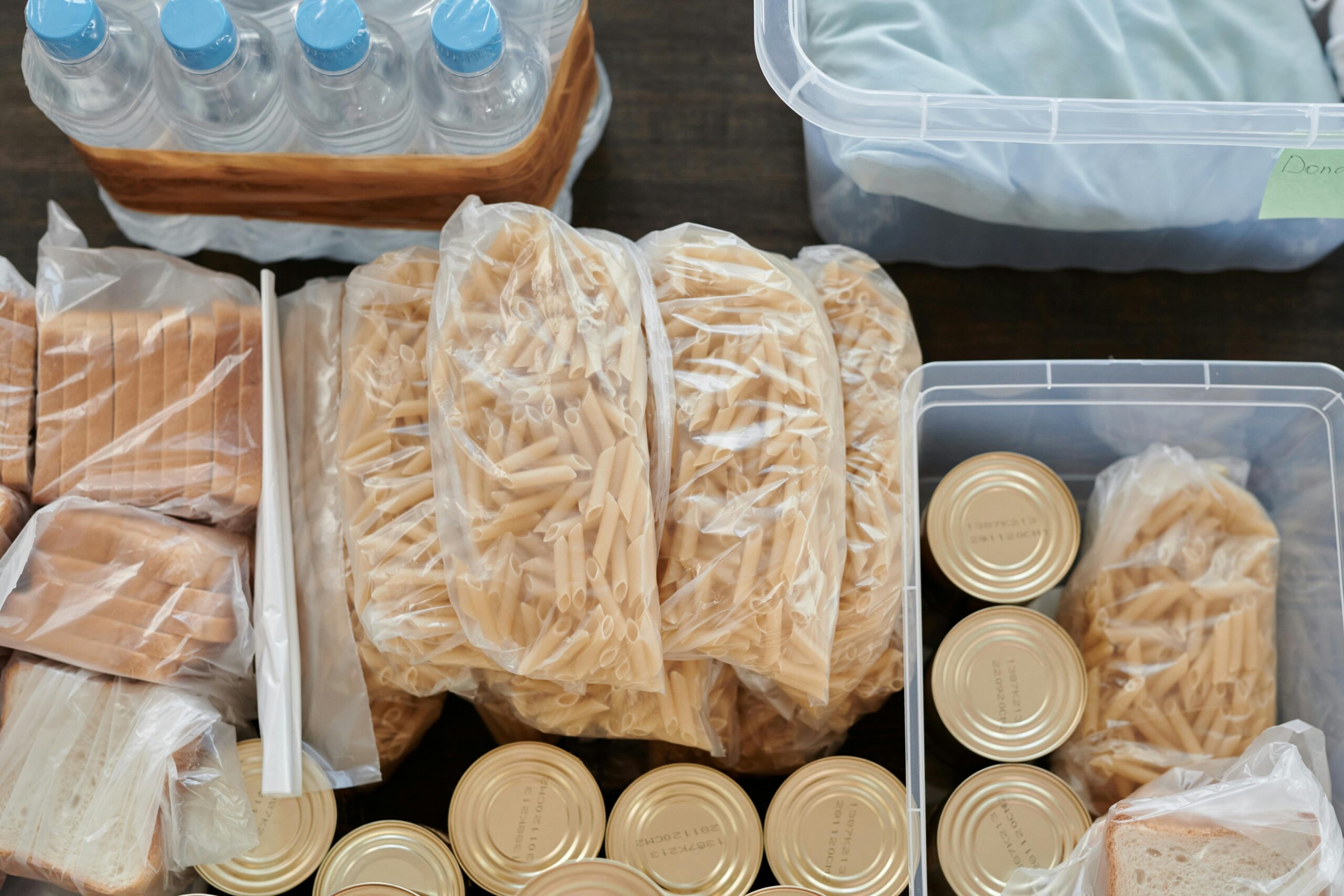
If the past few years have taught us anything– it’s to be prepared for the unexpected. Whether it’s a natural disaster like a hurricane, forest fire, tornado, or a global pandemic, being prepared for an emergency is of utmost importance.
This post is dedicated to teaching you how to be prepared incase of emergency. And don’t worry– you don’t need to spend an insane amount of time and money prepping– you just need to get the basics covered.
Emergency Prepping Tips
Assess Your Space
Before you run out to Costco and spend a million dollars on anything and everything– it’s first important to assess the amount of space you have available in your home to dedicate to your emergency preparedness.
Be Practical
It’s easy to want to Google search all of the possible gear and emergency prep items that you can get your hands on– but it’s best to be practical and ask yourself “will I actually use this?” This will help you stick to a reasonable budget and not buy impractical items.
Consider What You Are Prepping For
Some emergencies will require you to stay home, potentially without power or utilities, while others will require that you evacuate. Keep this in mind as you are prepping, so that you can be prepared to grab your emergency essentials and go, or hunker down and stay home for a while.
Cover the Basics
When it comes down to it, there are three main things to focus on when it comes to emergency preparedness– building an emergency kit, making a plan incase of necessary evacuation, and staying informed and up to date on emergency alerts.
Essential Emergency Items
Let’s dive into the essential items that you’ll want to have incase of an emergency!
- Water. Clean water is a non-negotiable to have on hand incase of emergency. I keep these water pouches in my family emergency kit because they are lightweight, compact, and have a 5-year shelf life. I also suggest getting a portable water filtration straw, like this one, in case filtered water is not available.
- Food. I have a 30-day freeze dried food supply on hand for emergencies. This food supply has a 25-year shelf life, so I don’t have to worry about replacing expired items, and I know I’m prepared in case of a food shortage or lack of capability to get to the grocery stores due to emergency. I also use food storage bags to store pasta, grains, and dehydrated foods.
- First aid kit. This emergency response first aid kit contains 415 pieces of essential medical supplies, which provides everything needed to handle emergencies efficiently.
- Light. A flashlight with extra batteries, and these solar-powered headlamps are great options for a light source on-the-go. For home lighting, these disposable candles burn for up to 30 hours at a time, making them perfect for emergency situations where you might be without electricity.
- Medications. If you or one of your family members have necessary medication, make sure to have a back-up supply in your kit incase of emergency.
- Important documents. Always store your important documents, such as passports, birth certificates, deed/lease to home or medical information organized and in your emergency kit.
- Multi-purpose tool. Having a multi-purpose tool on hand during an emergency is an essential. You may need to turn off utilities or water lines, make repairs, open food cans or containers, and more. Expect the unexpected, and a multi-purpose tool will always come in handy!
- Cell phone charger. Being able to stay in touch with emergency services or family members is super important during emergencies. Which is why I keep this solar powered phone charger in our emergency kit!
- Emergency contact information. Having family and emergency contact information on paper is a great idea in case your phone dies, and you don’t have important contact information memorized!
- Maps. A map of your local area is another essential to keep in your emergency kit. In today’s day and age we rely heavily on our GPS, but if our electronic devices die, we can end up lost without a map!
- Fuel. It’s a good idea to never let your gas tank in your car run below ½ tank in case you need to evacuate. However, you can keep extra cans of gas in case of emergency. Also, if your plan is to rely on a wood stove, gas stove or propane heater, make sure to have enough backup fuel or wood.
Make a Family Plan
Make a plan with your family or household members about how to respond to different types of emergencies. Have an evacuation route planned, as well as designated meet-up locations in case of separation.
Stay Informed
Identify how local authorities can notify you of an emergency. Whether it is through an app, radio station, or TV, be sure to stay updated on emergency alerts!

Did this blog post help you? Let me know in the comments! And to keep up with the latest on the blog, check out my recent posts:
